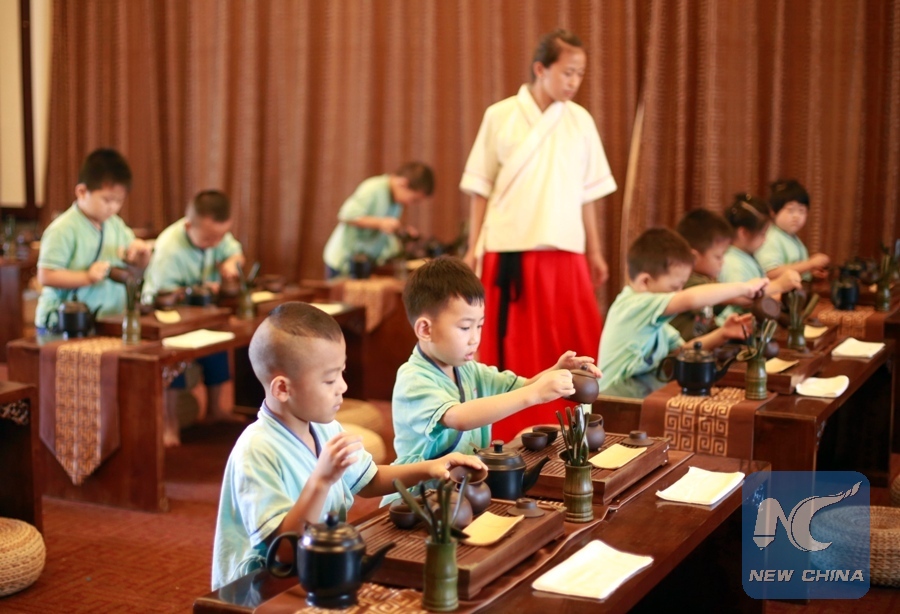
Kids learn tea ceremony under teacher's direction in Hengshui City, north China's Hebei Province, July 19, 2017. The Sunjing School of Hengshui holds "Summer Camp of Traditional National Culture" during the summer vacation. Kids learn traditional Chinese culture and enrich their vacation time from activities like wearing Han Chinese clothing and learning traditional etiquette. (Xinhua/Zhu Xudong)
CHICAGO, Aug. 24 (Xinhua) -- Children who start school at an older age do better than their younger classmates and have better chances of attending college and graduating from an elite institution, according to a new study from the National Bureau of Economic Research.
The study focused on the differences between Florida children born just before and after the Sept. 1 cut-off date for starting kindergarten, which means the youngest children in any class were born in August and the oldest in September of the previous year.
David Figlio, an economist at Northwestern University, and his co-authors of the study found that, on average, demographically similar September-born children performed better than their younger August-born classmates, all through their academic careers,
The age a child starts school may also affect college attendance and graduation rates. Among families in the middle socioeconomic group, the older, September-born kids were 2.6 percentage points more likely to attend college and 2.6 percentage points more likely to graduate from an elite university.
On the downside, August-born children were 1 percentage point more likely to be incarcerated for juvenile crime, the study
These are not "massive differences," but they are "meaningful," said Figlio.
The most surprising finding for Figlio and his co-authors was that the gap between August-born and September-born children occurs at all socioeconomic levels and is not easily closed, even in high-income families.
They compared the performance of August-born and September-born children in the same families based on Florida birth and education data, and found that even in high-income families, there was a gap in achievement between children who started school at a young age and siblings who started when they were older.
There's no clear remedy to the problem, Figlio said.

